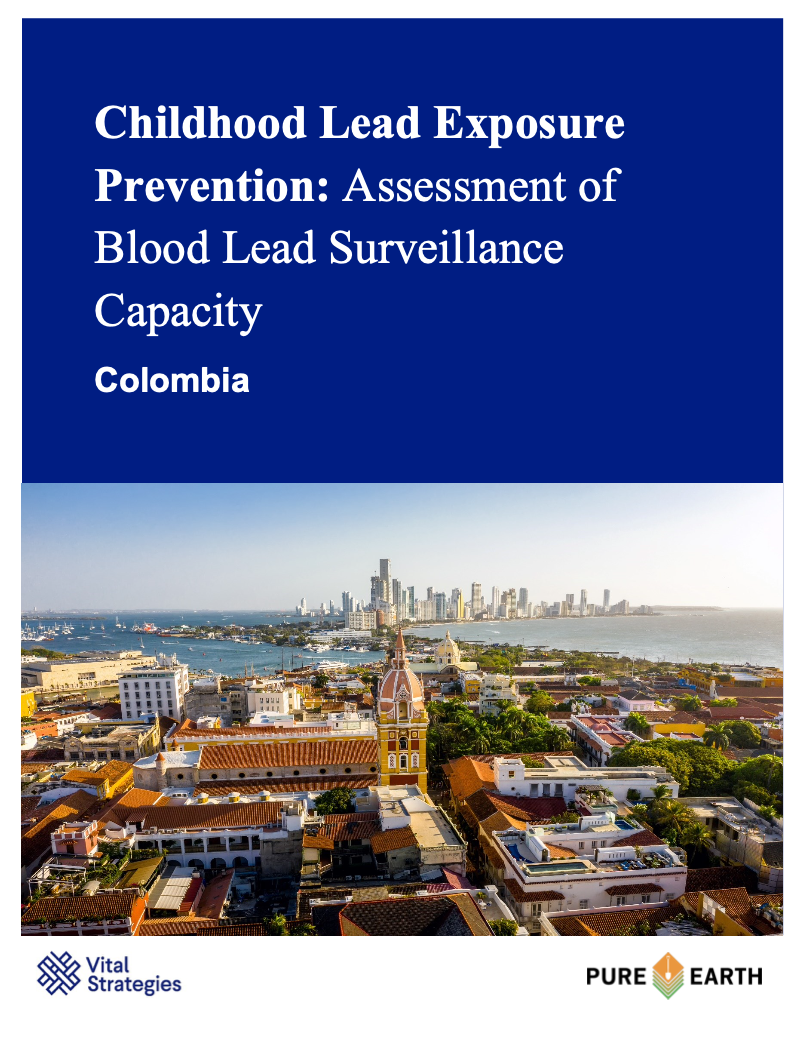Lead exposure is a significant public health concern in Colombia, with over a half million children estimated to have a blood lead level (BLL) above 5 micrograms per deciliter (µg/dL), a level that requires action according to WHO.
The Colombian Congress enacted Law 2041 in 2020, protecting people’s right to develop physically and intellectually in a lead-free environment. It calls for monitoring blood lead levels among children to understand their exposure and provide timely treatment. To support the implementation of this law, Pure Earth and Vital Strategies are exploring the capacity to establish childhood blood lead surveillance in Colombia under a new project titled “Strengthening Health Systems to Reduce Lead Exposure.” To enable this effort, we conducted this capacity assessment of Colombia’s existing infrastructure and resources to support a national blood lead surveillance system.
In this report, we summarized our findings on the current policy landscape, key stakeholders in lead exposure management, public health surveillance system, and laboratory capacity for testing blood lead levels in the population.
Recent Abstracts
The Power of Storytelling: Guidance for the Creation of Testimonials
Lead Poisoning and Early Childhood Development
Prioritizing Evidence Gaps: Air Pollution and Health Impacts of Climate Action
Raising Alcohol Taxes to Reduce Harm: Fact Sheets for Brazil
Risk of mortality by aggression: A retrospective cohort study in women with notification…
How the Alcohol Industry Steers Governments Away From Effective Strategies to Curb Drink…
Analysis of the Efficacy of Alcohol Industry-Sponsored Drink-Driving Campaigns
Messaging Recommendations for Effective Road Safety Campaigns: Lessons From Formative Research for Drink…
Prescribing Psychostimulants for the Treatment of Stimulant Use Disorder: Navigating the Federal Legal…
Enforcement of COTPA in India- current status, challenges and solutions
